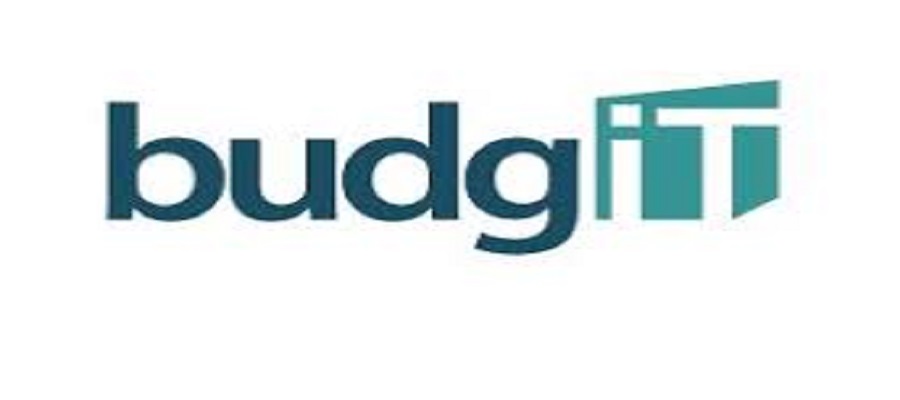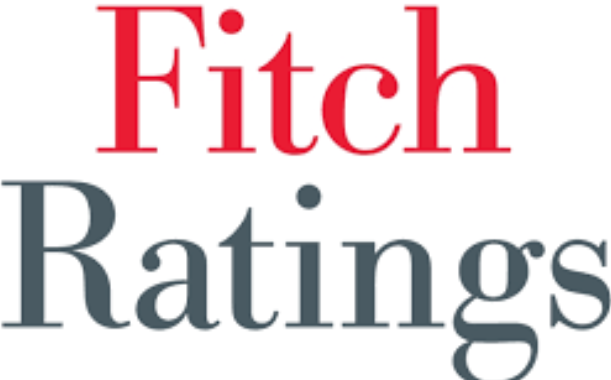E-Financial
BudgIT Queries Irregularities in FG’s Proposed 2025 Budget

BudgIT, a civic-tech organisation promoting transparency, accountability, and effective service delivery in Nigeria, has said that it has observed certain legacy issues with the federal government proposed 2025 budget.

BudgIT has therefore has called on the National Assembly to proactively address the irregularities, exercise its “Powers of the Purse” responsibly, allow robust public participation in the budget review process, and ensure that the approved budget reflects the needs and preferences of Nigerians through job creation, poverty reduction, and inclusive broad-based economic growth.
The organisation in a statement by Nancy Odimegwu, its communications associate, noted that a review of the performance of the Federal Government budget over recent years has revealed that the Federal Government often falls way off the mark in its macroeconomic assumptions, which pose serious fiscal risks leading to severe budget financing challenges, additional unforeseen government obligations, and a significant increase in public debt.
The government’s inflation projection of 15% in the 2025 fiscal year appears grossly unrealistic, it said, considering that inflation, which stood at 34.6% as of November 2024, has been driven not only by monetary factors such as exchange rate and money supply but also by the constant increase in food and energy prices—both of which the government has not created a clear roadmap to resolving in the short term.
While the oil price projection of $75 per barrel appears feasible given the global outlook of $70 to $73 per barrel, we strongly advise the National Assembly to resist the urge to increase the oil price benchmark to create fiscal space for their budgetary insertions, a practice observed in previous years.
“Recall that in previous years, BudgIT has identified several budgetary insertions made by the National Assembly that deviate from the federal government’s constitutional mandate and priorities and are assigned to MDAs that have neither the capacity nor the mandate to implement the inserted projects. In 2021, BudgIT observed that 5,601 capital projects were added to the Appropriation Bill during the review process by the National Assembly,” it said .
“In 2022, it increased to 6,462 projects across 37 Mother Ministries and 340 MDAs, while in 2024, 7,447 insertions amounting to a staggering N2.24 trillion were found in the budget. While the Constitution grants the National Assembly the authority to appropriate funds, it often modifies the Executive’s proposed budget to distort its original intent and disconnect it from the nation’s long-term development agenda. Many inserted projects usually lack proper conceptualisation, design, and cost estimation, undermining their effectiveness and feasibility. We believe that the legislature must exercise this power with the utmost responsibility. This responsibility, which cannot be overstated, entails ensuring resource efficiency, eliminating waste, and aligning budgetary decisions with the nation’s long-term economic development goals.
“Also, we have observed that the 2025 proposed budget breakdown submitted to the National Assembly for review and approval and published on the Budget Office website omits the breakdown of some MDAs, commissions, and councils, such as the National Judicial Council (₦341.63 billion), and TETFUND (₦940.5 billion). The budgets of over 60 government-owned enterprises (GOEs), including the Nigeria Ports Authority, Nigeria Customs Service, Nigerian Maritime Administration and Safety Agency (NIMASA), etc., were conspicuously absent from the 2025 Proposed Budget.
“Furthermore, a combined ₦2.49 trillion has been allocated to five regional development commissions (Niger Delta: ₦776.53 billion; South West: ₦498.40 billion; North East: ₦290.99 billion; North West: ₦585.93 billion; and South East: ₦341.27 billion) under the umbrella of personnel costs. This approach obscures the true nature of these commissions’ operational expenses. For context, the Ministry of Interior, responsible for overseeing the Nigeria Immigration Service, Nigeria Correctional Service, Nigeria Security and Civil Defence Corps (NSCDC), Federal Fire Service, and their governing board, has a significantly lower recurrent non-debt expenditure allocation of N648.84 billion. This amount covers personnel and overhead costs for the entire ministry and its agencies. Lumping development commission budgets under personnel costs raises concerns about transparency and accountability. It hinders proper scrutiny of how these funds are utilised and whether they effectively achieve their intended development objectives.
“More worrisome is the fact that the 2025 budget notably omits funding for the Lagos-Calabar Coastal Road, a capital-intensive infrastructure project. This omission implies that if funding for this project materialises, it will likely necessitate reallocating funds from other critical projects, potentially hindering their implementation and impacting the budget’s credibility. It is worth noting that President Bola Ahmed Tinubu’s recent pronouncement regarding the retirement package of military generals, which includes the provision of a bulletproof SUV, fully paid foreign medical treatment, $20,000 as estacode for medical trips, and payments for domestic help, contradicts his previous commitments to reduce the cost of governance and welfare packages to top-ranked public officials and civil servants. Such provisions not only inflate the budget and widen the fiscal deficit but may also demoralise lower-ranking military personnel, who lack adequate health insurance and retirement benefits despite their higher exposure to combat risks.
“As the National Assembly reviews the 2025 Proposed Budget, BudgIT appeals to the 360 Honourable Members of the Federal House of Representatives and 109 Distinguished Senators of the Nigerian Senate to prioritise national interest over personal or parochial considerations and ensure that the approved budget stimulates economic activities and macroeconomic stability, allocates resources to foster economic growth and development, equitably distributes resources to reduce poverty and inequality, and caters to the most vulnerable Nigerians.”
E-Financial
Fitch Downgrades Afreximbank to ‘BB+’/Stable Amid Concerns Over Ghana’s Debt

Fitch Ratings has downgraded African Export-Import Bank’s (Afreximbank) Long-Term Issuer Default Rating (IDR) to ‘BB+’ from ‘BBB-’.

Fitch also downgraded Afreximbank’s Short-Term IDR to ‘B’, from ‘F3’, and the long-term ratings on the bank’s global medium-term note programme and debt issuance to ‘BB+’, from ‘BBB-’.
The global rating institution subsequently withdrew the bank’s ratings.
In a statement posted on its website, Fitch explained that the downgrade “reflects our revision of Afreximbank’s policy importance risk to ‘medium’ from ‘low’ following the announcement of an agreement on Ghana’s debt to Afreximbank in the context of Ghana’s broader restructuring”.
It said, “This has led us to revise our assessment of Afreximbank’s business profile to ‘high risk’ from ‘medium risk’, which resulted in an overall business environment notching of -3 (-2 previously).”
Essentially, a BB+ /Stable rating from Fitch is considered non-investment grade, also known as high-yield or “junk”.
The statement added, “Fitch has chosen to withdraw the ratings for commercial reasons. Fitch will no longer provide ratings or analytical coverage for the bank.”
In arriving at its decision, Fitch stated, “Afreximbank and Ghana announced in December 2025 that they had reached an agreement in principle with respect to Afreximbank’s $750 million sovereign loan to Ghana.
“The IMF stated that the deal is in line with the comparability of treatment under Ghana’s official creditor committee. We view this as evidence that Afreximbank did not benefit from its preferred creditor status (PCS).”
It said, “While we had not previously given any uplift in our solvency assessment for PCS, the de-facto preferential treatment in a broader sense that Afreximbank, along with most other multilateral development banks, benefit from was previously factored into our assessment of the bank’s policy importance.
“The bank’s inclusion in Ghana’s restructuring underlines its weakening policy importance, in our view.”
The rating institution also said, “Our latest assessment of Afreximbank’s ‘high’ business profile risk underpins the ‘high risk’ quality of governance assessment, and ‘high’ strategy risk.
“The ‘high risk’ business environment assessment reflects the bank’s exposure to a ‘high risk’ operating environment with weak credit quality, low income per capita and high political risk in the countries of operation.”
It explained that the ratings were driven by the bank’s Standalone Credit Profile (SCP) of ‘bb+’, reflecting the lower of the solvency (bbb+) and liquidity (a) assessments and its ‘high risk’ business environment.
The statement added that the solvency assessment balanced the bank’s ‘strong’ capitalisation and ‘moderate’ risk profile.
Fitch stated, “Afreximbank’s ‘bbb+’ solvency assessment reflects both ‘strong’ capitalisation and ‘moderate’ solvency risks. Our assessment of capitalisation is underpinned by a ‘moderate’ usable capital to risk-weighted assets (21 per cent at end-2024) ratio, a ‘strong’ equity to assets and guarantees ratio (19 per cent) and ‘excellent’ internal capital generation.
“The ‘moderate’ solvency risks assessment reflects ‘high’ credit risk, ‘weak’ risk management policies, ‘low’ concentration risk and ‘very low’ equity risk.
“Afreximbank’s ‘a’ liquidity assessment reflects the ‘strong’ quality of treasury assets, measured by the share of treasury assets rated ‘AA-’ to ‘AAA’ (50 per cent at end-2024 and we expect it to remain above the ‘strong’ threshold of 40 per cent), and a ‘moderate’ liquidity buffer (defined as liquid assets-to-short-term debt, at 95 per cent at end-2024).
“The bank’s liquidity profile is enhanced by its access to capital markets and diversified funding sources, including credit lines ($2.1 billion, of which $0.6 billion was committed at end-2024) and collateral deposits. The short duration of the loan portfolio also contains liquidity needs.”
Fitch also stated that it “assesses shareholders’ capacity to support Afreximbank at ‘bb-’, based on the average rating of key shareholders (ARKS) accounting for more than 50 per cent of the bank’s capital.
“The sovereign upgrades of Egypt and Nigeria, Afreximbank’s two largest shareholders, in April 2025 improved the ARKS to ‘B+’ from ‘B’.
“Credit risk mitigants on callable capital (covering 40 per cent of $4.3 billion) enhance the support capacity by one notch to ‘bb-’.
“The support assessment also reflects the ‘strong’ propensity of shareholders to support the bank, which has been consistently demonstrated by ongoing capital injections and dividend reinvestments.”
E-Financial
FBNQuest Merchant Bank Rebrands as Quest Merchant Bank

FBNQuest Merchant Bank Limited has completed a change of name and will now operate as Quest Merchant Bank Limited, following the receipt of all required corporate and regulatory approvals.

The name change does not affect the Bank’s legal or going-concern status, management, or the nature of its business. Quest Merchant Bank Limited remains a duly licensed merchant bank, regulated by the Central Bank of Nigeria (CBN) and the Securities and Exchange Commission (SEC), and continues to deliver its full suite of merchant banking, advisory, and capital markets services to clients.
Commenting on the development, the Ag. Managing Director/CEO, Afolabi Olorode, stated: “This name change represents a pivotal milestone in the rich history of the Bank and a deliberate strategic repositioning that reflects our resilience, strong track record, and long-term growth ambitions. While our name has evolved, our commitment to our clients, stakeholders, and regulators remains unwavering.”
As part of the transition, the Bank is updating its branding, communications, and digital platforms to reflect the new name. During this period, some legacy references may remain visible across select touchpoints as updates are progressively completed.
All existing contracts, client relationships, and obligations of the Bank remain valid, binding, and fully enforceable following the name change.
E-Financial
UBA launches instant digital platform for seamless account opening across Africa, diaspora

United Bank for Africa (UBA) Plc, Africa’s leading financial institution, on Tuesday unveiled a groundbreaking instant account opening platform, revolutionising banking access for millions across the continent and diaspora communities worldwide.

UBA
The fully digital innovation, accessible at ubagroup.com, empowers prospective customers to complete account onboarding online in minutes, bypassing paperwork, branch visits, and lengthy processes that have long hindered financial inclusion. Supporting Naira and Diaspora accounts with multi-language options, the platform operates seamlessly on computers, tablets, and smartphones, catering to UBA’s diverse pan-African footprint spanning 20 countries, the UK, US, France, and UAE.
Shamsideen Fashola, Group Head of Retail and Digital Banking, described the launch as a pivotal step in democratising finance. “At UBA, we are committed to redefining the customer experience through innovation and simplicity,” Fashola said. “This fully digital solution underscores our belief that banking should be accessible, secure, and truly borderless.”
The seven-step process is intuitive: customers select “Open a Savings Account,” input their Bank Verification Number (BVN), undergo facial verification, confirm an OTP, update details, upload documents, add a digital signature, and receive an instant account number. This bridges traditional banking rigour with fintech speed, incorporating digital KYC while upholding stringent security.
Built with compliance at its core, the platform adheres to Nigeria’s Data Protection Act (NDPA) and Europe’s GDPR, safeguarding user privacy amid cross-border operations. Unlike conventional methods requiring physical biometrics, it enables immediate enrolment in UBA’s digital channels, blending convenience with regulatory depth.
Alero Ladipo, Group Head of Brand, Marketing, and Corporate Communications, highlighted customer-centric design. “Today’s customers expect speed, convenience, and compliance without compromise,” Ladipo stated. “We have blended industry-leading digital onboarding with robust standards for a seamless experience matching global best practices.”
The move reinforces UBA’s dominance in technology-driven inclusion, serving over 50 million customers with 30,000 employees and pioneering retail, commercial, and institutional services. Analysts view it as a strategic edge over fintech rivals, accelerating Africa’s digital economy amid rising diaspora remittances and intra-continental trade.
As Nigeria and Africa push financial digitisation, UBA’s platform positions the bank to capture untapped markets, fostering economic growth through barrier-free banking

 Telecom2 days ago
Telecom2 days agoPolice Bust ₦7.7bn Telecom Hack Gang, Seize 400 Laptops in Massive Fraud Swoop

 General News2 days ago
General News2 days agoNaira Smashes Through ₦1,400 Barrier in Official FX Rally

 General News2 days ago
General News2 days agoNCC Slaps ₦250,000 Fee on Trial Licences to Spur Telecom Innovation

 News2 days ago
News2 days agoFirms Commit to Boost African Robotics Market

 E-Financial2 days ago
E-Financial2 days agoUBA launches instant digital platform for seamless account opening across Africa, diaspora

 Telecom2 days ago
Telecom2 days agoAmazon Axes 16,000 Jobs Worldwide in Major Restructuring Push

 E-Financial2 days ago
E-Financial2 days agoKuda MFB Secures National Microfinance Banking Licence, Sets Stage for Nationwide Growth

 General News2 days ago
General News2 days agoKaspersky Reveals How Digitalisation is Influencing Family Life























